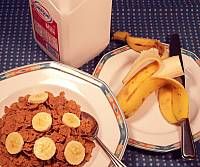
Eating for Slumber: Food to Help You Sleep Better
—by Nathalie Fiset
Learn which foods can make falling asleep easier.

| Home | Menu & Grocery List | What's For Dessert | Table Topics |
Quality Time |
Newsletter | Mind-Stretching Brain Games | Mystery Pictures | Library | Site Information |
|

Custom Search
|
Eating for Slumber: Food to Help You Sleep Better—by Nathalie Fiset Learn which foods can make falling asleep easier. |
|
|
Have you ever tossed and turned from late evening till early morning, wondering when sleep would come? Have you ever simply stared at the ceiling, wondering why you were still awake? Have you ever wondered if you should have taken medications, or if there is food to help sleep come easier and better to you? Best choices for evening snacks are discussed on page 2 of Eating for Slumber |
|||
Browse the Recipe Directories |
Complete Meal Recipes 30-Minute Meals |
||
| Copyright © 2004 - 2020 What's For Dinner? Make Dinner Time Family Time! - All Rights Reserved. Terms of Use | ||
| Home || Today's Menu || Newsletter || Directory of Recipes || Directory of Articles | ||